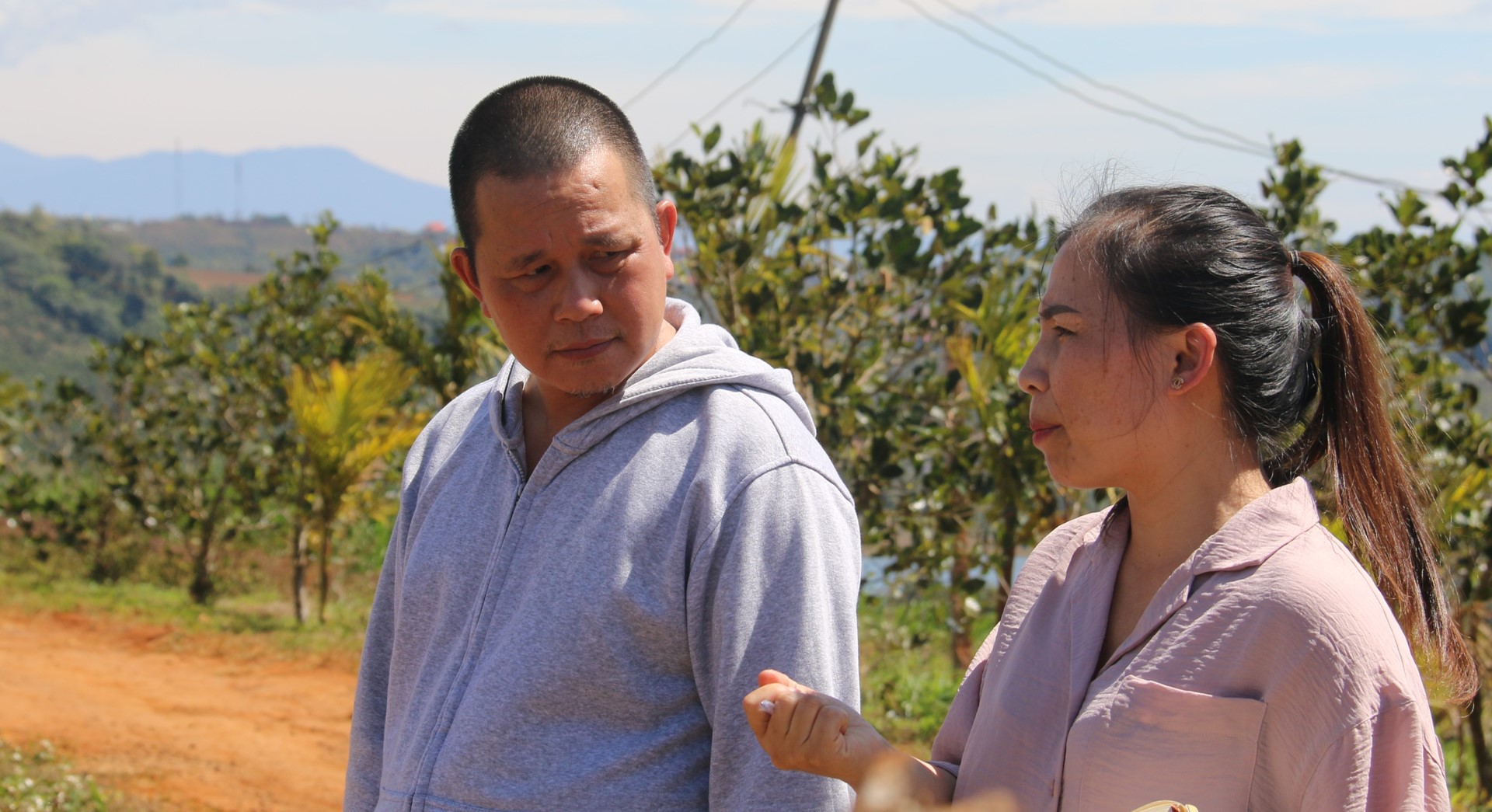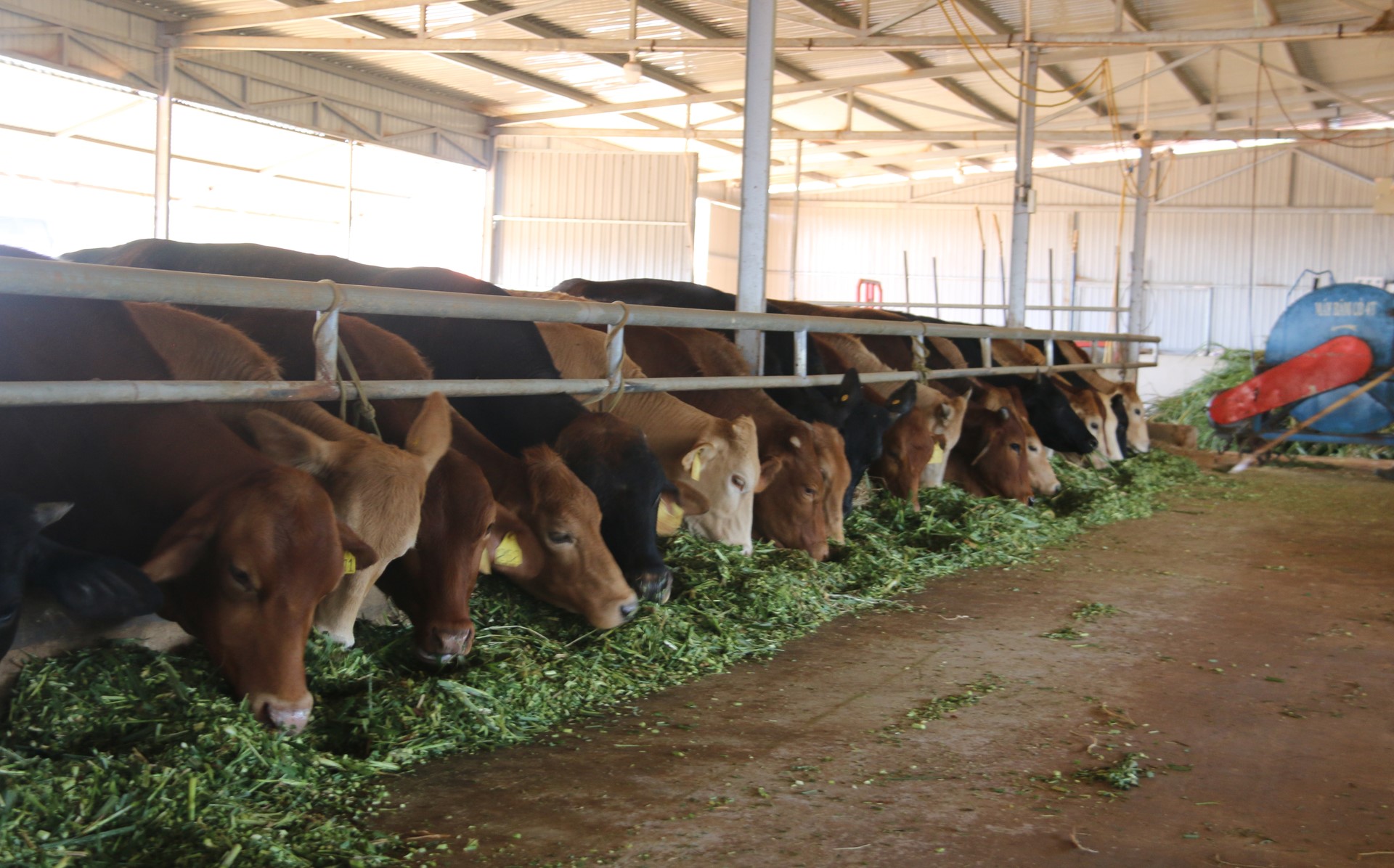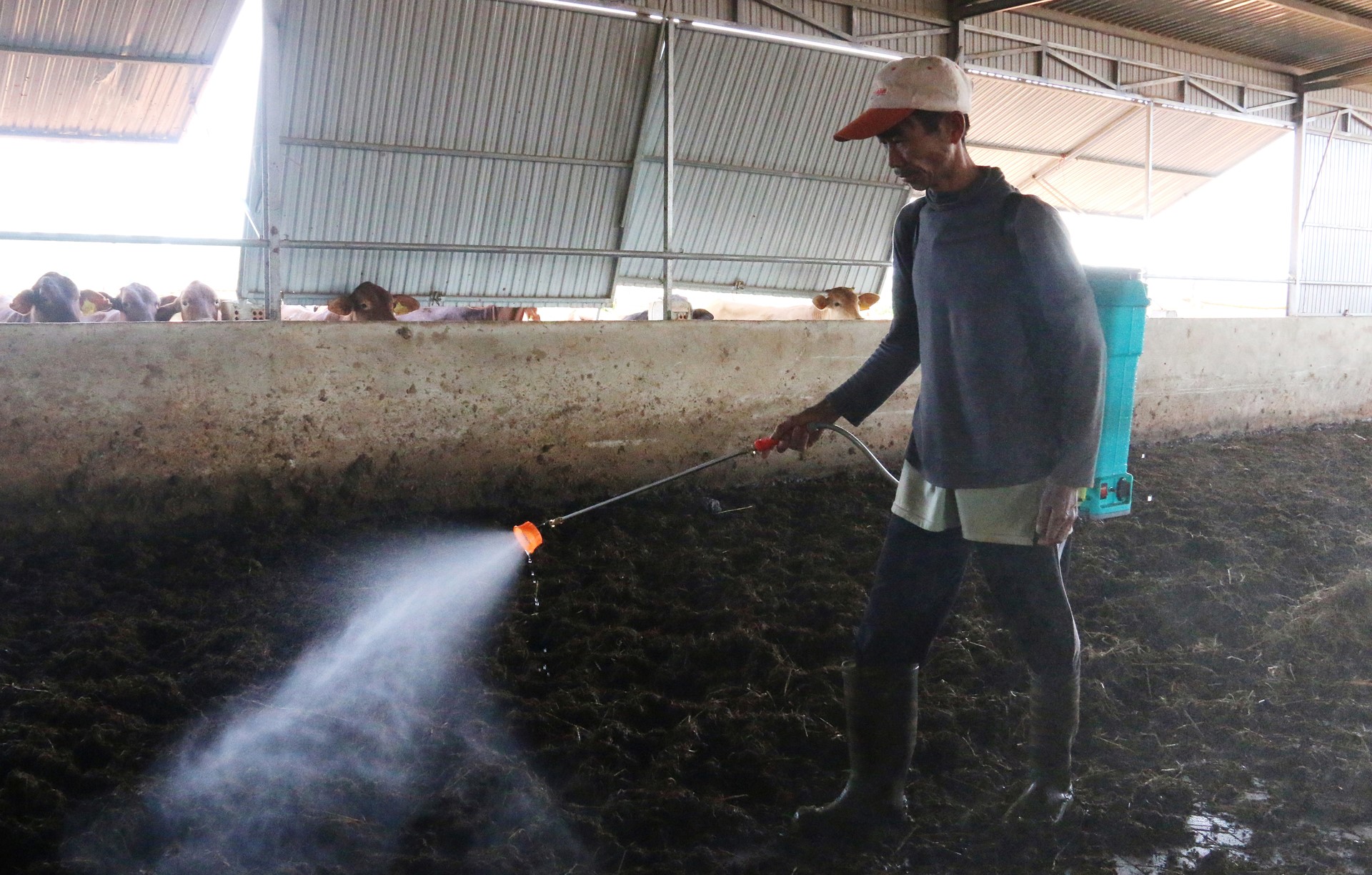November 25, 2025 | 09:07 GMT +7
November 25, 2025 | 09:07 GMT +7
Hotline: 0913.378.918
November 25, 2025 | 09:07 GMT +7
Hotline: 0913.378.918

Mr. Ha Trung Hieu said that when the farm goes into stable operation, he will support breeds for the surrounding people to get out of poverty. Photo: Quang Yen.
In 2021, Mr. Ha Trung Hieu from Hoc Mon district (HCMC) came to Dak Nong and chose a land parcel located far from residential areas to invest in building a closed farm for breeding cows and planting trees. The source of fertilizer for crops comes from the cow herd raised on the farm.
Mr. Ha Trung Hieu shared that previously, he had built a farm in Binh Phuoc province, but on a small scale. After much research, he realized that the land in Tuy Duc (Dak Nong) was fertile, so he decided to choose this place to perform organic agriculture.
According to Mr. Hieu, to do this, the most important issue is the source of fertilizer for production. Learning from many models and applying his previous experiences in Binh Phuoc province, he raised cows to produce organic fertilizer.
The cow breeding farm is far from residential areas and invested according to technical regulations. The cow barn has an area of 1,000 m2, divided into two areas, including a rest area and a play area for cows.

Mr. Ha Trung Hieu's cow farm is raised according to VietGAP standards. Photo: Quang Yen.
"The farm is raising the Angus breeds with an average import price of VND 45 million/head. To ensure a regular source of fresh food for cows, the farm invests in growing grass in a large area and farming according to VietGAP standards. The cow herd is periodically vaccinated against common diseases," said Mr. Hieu.
In addition, the activities of cleaning barns, bathing cows, feeding and drinking cows, etc. are implemented according to a fixed time frame. Thereby creating habits and helping cows grow well. In particular, the waste in the breeding process is completely treated with biological products, so even though there are up to 150 heads raised, there are absolutely no odor emissions into the environment. It is expected that in the coming time, the herd of cows will simultaneously breed, and the total herd will increase to over 250 heads.
The farm owner added that because of the large number of cows and the relatively large daily workload, priority should be given to recruiting local workers. Currently, the cow farm creates jobs for 10 local workers with an average monthly income of about VND 7.5 million, not including additional bonuses. All of whom are poor households in the commune.
"In addition to raising cows, the farm also grows macadamia, coffee, durian, avocado, etc. I use cow manure to compost as organic fertilizer for fruit trees. When the farm goes into stable operation, through local authorities, I will cooperate with difficult households to support the cow breed. This is to help these households have a stable job to get out of poverty," said the farm owner.
Mr. Nguyen Van Nam (living in Village 1, Dak Buk So commune) has been working at the farm for more than a year. His daily job is to cut the grass and feed the cows. Thanks to the closed breeding process and a fixed schedule, besides working on the farm, Mr. Nam can make use of his time to go home and do more housework. For him, this job is suitable, bringing an income of approximately VND 7.5 million/month.

Mr. Hieu's VietGAP cow farm creates jobs for more than 10 poor local workers. Photo: Quang Yen.
Similarly, Mr. Nguyen Van Long said that before working at the farm, he thought that raising cows would be hard, especially feeding and cleaning the breeding area. However, when he was accepted for work and provided technical guidance by Mr. Hieu, he changed his mind.
"We are all households with difficult circumstances, supported by stable jobs, with an income of VND 6.5–7.5 million/month. I also hope that the farm will expand its production scale and create more jobs for people around the area," said Mr. Long.
Mr. Nguyen Van Thuong, Chairman of the Dak Buk So Commune People's Committee, said that although the farm has just been put into operation, it has created regular jobs and jobs for about 10 workers. At the time it was harvesting agricultural products and supplying meat to the market, the farm had created jobs for about 20 seasonal workers.
According to Mr. Nguyen Van Thuong, the farm has accepted workers from poor and disadvantaged households to work. If this model is replicated, it will not only exploit the strengths of the locality’s natural conditions but also contribute to ensuring security and jobs for people in the commune.
Translated by Huyen Vu Thu

(VAN) Green transition is crucial for the Mekong Delta amid climate change and stricter standards, offering a path toward sustainability.

(VAN) Dong Thap promotes agricultural restructuring, forms large specialized farming zones, raises the value of agricultural products and develops toward ecological and high-tech directions.
/2025/11/22/4018-4-213342_747.jpg)
(VAN) The Mekong Delta Agricultural Experts Club has attracted 143 experts and researchers to participate in providing consultancy and contributing initiatives to the development of one million hectares of high-quality rice.

(VAN) Ca Mau’s development of OCOP products opens a path to increasing cooperatives value, helping boost income, expand markets, and affirm collective economy's role.

(VAN) Turning seemingly ordinary coconut shells into unique jewelry and artwork, Nguyen Bang Nhi spreads the value of local culture through her brand, Cocohand.

(VAN) Results from the Sustainable Durian Model Project in Dak Lak have confirmed the critical role of Yara Viet Nam in transferring advanced nutritional solutions to farmers.

(VAN) In Tuyen Quang province, livestock farmers have introduced effective models and innovative practices that significantly strengthen African Swine Fever prevention and control efforts.